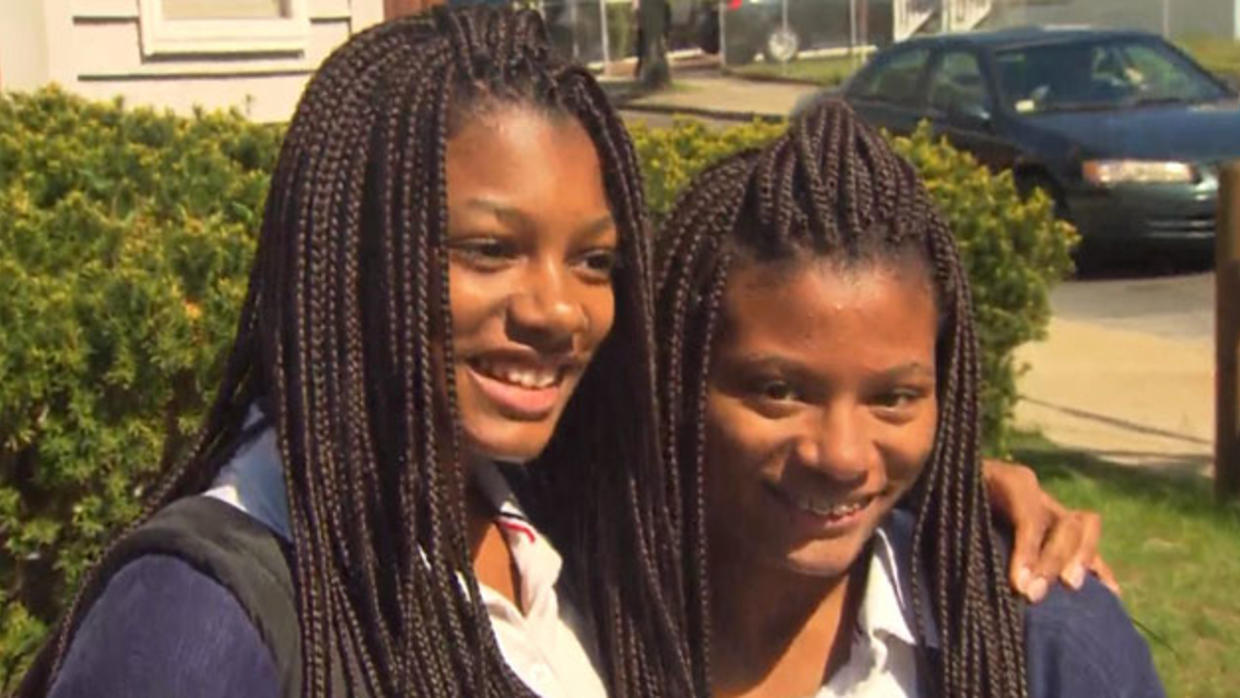
Twin sisters Deanna and Mya Scott, 15, were punished because the school’s dress code says braid extensions aren’t allowed.
The Crown Act is a legislative initiative that stands for “Creating a Respectful and Open World for Natural Hair.” As a black person, I can say that hair has always been a vital part of the African American community, and the Crown Act is essential for protecting our hair and preserving our cultural identity.
History and Federal Legislation
The Crown Act started as a California state law in 2019, prohibiting discrimination against natural hair in the workplace and schools. Since then, it has been passed as legislation in several other states, including New York, New Jersey, Virginia, and Colorado. Additionally, the U.S. House of Representatives passed the CROWN Act in September 2020, which aimed to prohibit discrimination against natural hair at the federal level. However, it has not yet been passed by the Senate and signed into law by the President.
Impact on the Black Community
For centuries, Black people have been ridiculed and discriminated against for wearing their natural hair, which often leads to limited job opportunities and unequal treatment in schools. The Crown Act gives the Black community the right to wear their hair naturally without facing discrimination or retribution. It allows Black individuals to express themselves and their culture freely, increasing their confidence and self-esteem.
Impact on the White Community
The Crown Act not only benefits the Black community, but it also helps educate and enlighten the White community about the importance of natural hair and cultural appreciation. It challenges harmful stereotypes and prejudices that have been ingrained in society and promotes inclusivity and diversity in the workplace and schools.
Examples
- In 2019, Actress Gabrielle Union was fired from America’s Got Talent after speaking out about a “toxic culture” and her hair being deemed “too black.” It’s frustrating to be punished for simply embracing our natural hair and the beauty that comes with it. As a black woman, I should not have to conform to Eurocentric beauty standards in order to keep my job.
Quote: “Union reportedly received criticism from staff at the show over her hairstyles, which were allegedly deemed “too black” for the AGT audience.”
- Akua Gyamfi, a black journalist, was fired from her job at a British talk show in 2020 for refusing to change her natural hairstyle. It’s frustrating that my natural hair, which is a part of my identity and culture, is seen as unprofessional or inappropriate in certain work environments.
Quote: “It’s incredibly sad that in 2020, hair like mine still has the power to remove a person from their job.”
Source: https://www.cnn.com/2020/02/20/uk/akua-gyamfi-sky-news-hairstyle-scli-gbr-intl/index.html
- DeAndre Arnold, a high school senior in Texas, was suspended and told he could not attend his graduation unless he cut his dreadlocks. This is not just about hair, but about discrimination against black culture and identity. Our hair is a part of who we are, and it should not be used as a tool for oppression.
Quote: “I’ve been growing my hair for seven years. I’m at the end of my senior year. I’ve never had any problems with it until now.”
- Mya and Deanna Cook, two sisters in Massachusetts, were banned from their school’s sports teams for wearing braids, which were deemed a violation of the school’s dress code. This is not just about hair, but about institutionalized racism and the policing of black bodies. Our hair is a part of our culture, and we should not have to sacrifice that in order to participate in school activities.
Quote: “I don’t know if it’s racial or if it’s just that they don’t understand black culture.”
- Chastity Jones was offered a job at a call center in Alabama, but was told she could not start unless she cut her dreadlocks. This is yet another example of how black people are discriminated against in the workplace based on our hair. It’s unacceptable that we have to choose between our identity and our livelihood.
Quote: “They kept saying ‘we can’t have you walking around with dreadlocks in the office
Source: https://www.cnn.com/2018/09/15/us/alabama-dreadlock-discrimination-lawsuit-trnd/index.html
Influence on Culture
The Crown Act is significant in preserving and celebrating Black culture. It is a step forward in acknowledging and respecting Black people’s traditions, including hair care and maintenance. The act supports the Black community’s right to express their cultural identity through their hair and promotes acceptance of diverse beauty standards.
Why it is important
The Crown Act is crucial for advancing racial justice and equity. It promotes inclusion and diversity, ensuring that all individuals have the right to express their cultural identity freely without fear of discrimination or bias. It also creates a safer and more accepting environment for future generations.
How to be an Ally
As an ally, it is essential to listen to Black people’s experiences and perspectives regarding natural hair discrimination. Educate yourself on the Crown Act and its significance in the fight for racial justice. Use your privilege and platform to advocate for the passage of the Crown Act and support Black-owned businesses that cater to natural hair care. Speak out against discriminatory practices and microaggressions towards Black people’s hair.
Sources:
- “The CROWN Act” by The CROWN Coalition, https://www.thecrownact.com/
- “The Crown Act” by National Urban League, https://nul.org/blog/crown-act
- “What is the CROWN Act and what do advocates say it will do?” by ABC News, https://abcnews.go.com/GMA/Style/crown-act-now/story?id=71724545
- “House Passage of Crown Act Brings Nation Closer To Ending An Insidious Form of Discrimination” by National Urban League, https://nul.org/news/house-passage-crown-act-brings-nation-closer-ending-insidious-form-discrimination